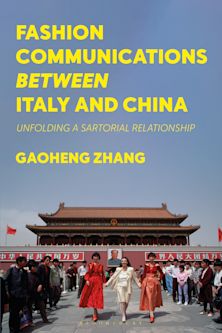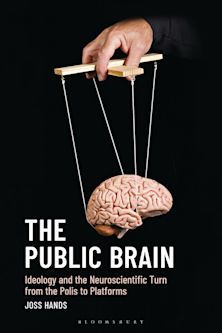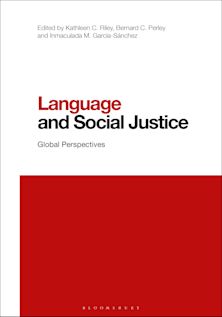- Home
- ACADEMIC
- Anthropology
- Cultural Anthropology
- Between Urban Topographies and Political Spaces
Between Urban Topographies and Political Spaces
Threshold Experiences
Fabio Vighi (Anthology Editor) , Alexis Nuselovici (Anthology Editor) , Mauro Ponzi (Anthology Editor) , Bernhard Waldenfels (Contributor) , Massimo Donà (Contributor) , Félix Duque (Contributor) , Pietro Montani (Contributor) , Dario Gentili (Contributor) , Gabriele Guerra (Contributor) , Vittoria Borsò (Contributor) , Elettra Stimilli (Contributor) , Irene Kajon (Contributor) , Wolfgang Müller-Funk (Contributor) , Elio Matassi (Contributor)
Between Urban Topographies and Political Spaces
Threshold Experiences
Fabio Vighi (Anthology Editor) , Alexis Nuselovici (Anthology Editor) , Mauro Ponzi (Anthology Editor) , Bernhard Waldenfels (Contributor) , Massimo Donà (Contributor) , Félix Duque (Contributor) , Pietro Montani (Contributor) , Dario Gentili (Contributor) , Gabriele Guerra (Contributor) , Vittoria Borsò (Contributor) , Elettra Stimilli (Contributor) , Irene Kajon (Contributor) , Wolfgang Müller-Funk (Contributor) , Elio Matassi (Contributor)
You must sign in to add this item to your wishlist. Please sign in or create an account
Description
Between Urban Topographies and Political Spaces: Threshold Experiences uses the term “threshold” as a means to understand the relationship between Self and Other, as well as relationships between different cultures. The concept of “threshold” defines the relationship between inside and outside not in oppositional terms, but as complementaries. This book discusses the cultural and social “border areas” of modernity, which are to be understood not as “zones” in a territorial sense, but as “spaces in between” in which different languages and cultures operate. The essays in Between Urban Topographies and Political Spaces identify the dimension in urban topographies and political spaces where we are able to locate paradigmatic experiences of thresholds. Because these spaces are characterized by contradictions, conflicts, and aporias, we propose to rethink those hermeneutic categories that imply a sharp opposition between inside and outside. This means that the theoretical definition of threshold put forward in these essays—whether applied to history, philosophy, law, art, or cultural studies—embodies new juridical and political stances.
Table of Contents
Introduction
Part I: Thresholds
1. Bernhard Waldenfels, Threshold Experiences
2. Alexis Nuselovici, Europe, from Threshold to Threshold
3. Massimo Donà, The Singing of the Sirens
4. Félix Duque, The European Membrane
Part II: Spaces in between
5. Mauro Ponzi, Naples as Topography of Spaces in Between: Walter Benjamin and the Threshold between Old and New
6. Pietro Montani, Feeling Obliged: Ethics and Aesthetics of Intermediate Spaces
7. Fabio Vighi, Between the Two Deaths: the Real as Threshold
8. Dario Gentili, Paris Topographies of Capitalism: the Nineteenth-Century Metropolis
9. Gabriele Guerra, “But the Dioscuri”: Between Labyrinth and Temple: Walter Benjamin’s Topographies
Part III: Heterotopies
10. Vittoria Borsò, On the Threshold between Visibility and Sayability: the Event of Visuality in the Materiality of the Image
11. Elettra Stimilli, The Threshold between Debt and Guilt
12. Irene Kajon, The Biblical Metaphor of the Threshold in Rosenzweig and Kafka
13. Wolfgang Müller-Funk, The Sphinx as a Threshold Figure: about the Limits between the Sexes
14. Elio Matassi, Trauerspiel and Opera in Walter Benjamin
Works Cited
Index
About the contributors
Product details
| Published | Apr 02 2014 |
|---|---|
| Format | Ebook (Epub & Mobi) |
| Edition | 1st |
| Extent | 216 |
| ISBN | 9780739188361 |
| Imprint | Lexington Books |
| Publisher | Bloomsbury Publishing |
About the contributors
Reviews
-
The refreshingly transdisciplinary essays in this timely volume make an impressive case for the Benjaminian concept of threshold experiences as a key paradigm for the 21st century. Ranging from European cultural and philosophical heritage to its political reality, they encourage us to embrace the complementarity in opposites.
Ingo Cornils, University of Leeds
-
The threshold has long been recognized as a central organizing concept and figure in the work of Walter Benjamin and in the broad array of work in the humanities influenced by him. Between Urban Topographies and Political Spaces represents an important contribution to our understanding of this problem. Its essays focus on a number of key issues within the broader topic of space and liminality, emphasizing not just the physical spaces explored by Benjamin himself (Naples, Paris), but the threshhold spaces between genres, disciplines, concepts, and the sexes. A particularly intriguing opening section intervenes in contemporary debates on the idea of Europe, using Benjamin’s ideas as a launch pad—and hammer. This volume is a signal scholarly achievement.
Michael W. Jennings, Princeton University
































